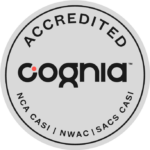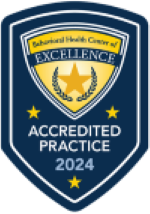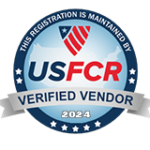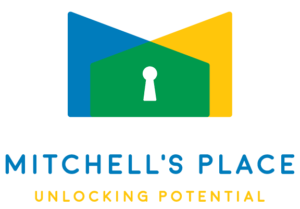Early Learning Preschool
The Early Learning Preschool (ELP) is an inclusive, ABA based, early intervention program for young children with autism spectrum disorder and neurotypical peers. The ELP is a nationally accredited preschool through Cognia.
Through the support of highly qualified and trained staff, the program fosters the cognitive, language, social, adaptive, and motor development for each child enrolled by providing enriched learning and socialization opportunities. A data-driven, outcomes-based program is the foundation for identifying strategies that define best practice. The Early Learning Preschool at Mitchell’s Place implements a research-based early learning curriculum called Mother Goose Time. The curriculum applies child development theories to a unique model for teacher support, developmentally appropriate learning experiences for the child, and family involvement. The ELP also uses the Handwriting Without Tears Curriculum to address fine motor and handwriting skills. Socially Savvy is implemented as an assessment tool and curriculum to break down social functioning skills into fun and easy lessons that are planned weekly. The program serves children ages 2 to 6 years of age. The classrooms are designed based on the inclusion model consisting of five children with a diagnosis of Autism and an average of five neurotypical peers with a 3:1 student teacher ratio.
Autism spectrum Students in the ELP:
- Initial assessment using the Verbal Behavior Milestones and Placement Program
- Initial assessment using the DAY-C Development Assessment of Young Children – 2nd Edition.
- Treatment Program developed by a BCBA
- An Individualized Education Program developed by the Lead Teacher in the classroom setting
- Quarterly Progress Reports
- Progress monitoring and annual re-assessments using ABA based assessments such as the VB-MAPP, ABLLS-R, AFLS and EFL.
- The use of a Multidisciplinary model resulting in a collaborative approach to intervention
- Social Savvy Assessment and Curriculum Guide to address social functioning skills
- Handwriting without Tears Curriculum
- Weekly Motor Group class lead by an Occupational Therapist
- Instructional focus, teaching methods and materials are rooted in the principles of ABA such as the use of positive reinforcement and reinforcement systems individualized to each child, prompting procedures, the 3-step guided compliance procedure, advanced language training, NET training, as well as generalization and maintenance procedures.
- Transition services for students entering grade school
- Exit assessment Battelle Developmental Inventory-Second Edition
- A BCBA on staff for intensive and on-going staff training, as well as assisting with problem behavior assessment, intervention and data collection.
Neurotypical Student in the ELP:
- Initial assessment using the Development Skills Continuum developed from the Mother Goose curriculum.
- Quarterly Progress Reports
- Annual re-assessment of skill acquisition towards Kindergarten readiness
- Socially Savvy Assessment and Curriculum Guide to address social functioning skills
- Handwriting without Tears Curriculum
- Weekly Motor Group class lead by an Occupational Therapist
- Highly educated and trained staff: Lead teachers are Class A and Class B certified teachers in Early Childhood Special Education or Collaborative Education. The assistants gold a bachelor’s degree.
- Research based curriculum targeting seven domains of learning advancing the students toward kindergarten readiness
- STEAM based learning
- Daily points of contacts through direct interactions between teacher and parent
- Instructional focus, teaching methods and materials are rooted in the principles of ABA such as the use of positive reinforcement and reinforcement systems individualized to each child, prompting procedures, the advanced language and social training.





